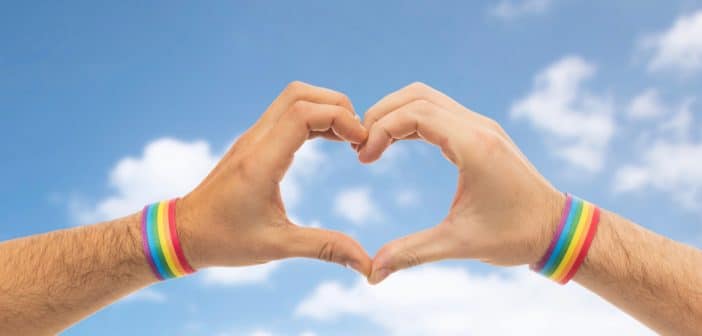 Before Rineya got sober about a year ago, her only chance to be fully at ease with who she was came when she was drinking or using drugs. As a lesbian who was not fully out, she was consumed by pressure to act a certain way, something she says is common for members of the LGBTQ community.
Before Rineya got sober about a year ago, her only chance to be fully at ease with who she was came when she was drinking or using drugs. As a lesbian who was not fully out, she was consumed by pressure to act a certain way, something she says is common for members of the LGBTQ community.
“Most people in my community deal with a lot of internal and external conflict that attributes to us yearning for escapism,” said Rineya, who asked that only her first name be used. “We have mostly been made to feel ashamed of who we are, inferior for what we believe in and afraid to live and speak our truths.”
It’s unsurprising those feelings can lead to unhealthy coping mechanisms, she said.
“If the only time and chance for us to feel free is when we’re using substances, then this is how we chase the feeling of freedom and become ourselves.”
Rineya knew why she was using, but ultimately she also had to face the negative consequences that drugs and alcohol were having on her life. She found Serenity Health and Substance Misuse, UK organization that provides treatment and connects patients with services, including alcohol rehab in London, detox in London and LQBTQ addiction treatment. There, she was able to get treatment for her substance use disorder while also finding healthier ways to cope with the challenges of her sexual identity.
Marie Edmonds, from the Serenity Health management team, says people who identify has LGBTQ have higher rates of substance abuse than the general population.
“From a young age they are in an internal conflict with themselves, living in fear of being found out, dread of being caught and with a constant worry of what people will think of them,” she said. “Addiction starts from childhood, wrapped up in low self worth and self-esteem issues.”
Being in conflict with an essential part of themselves—like their sexual orientation or gender identity—can leave people in crisis, Edmonds said.
“They will perhaps feel they are a square peg trying to fit in a round hole.”
Because of this, it’s important that members of the LGBTQ community have access to treatment that can help them address the underlying causes of their addiction.
“Every person in the LGBTQ community has a right to be who they are, wherever they are,” she said. “So they need to be in a safe surrounding to have their own individual needs met. A place where they are free to express themselves and to live without the fear of being condemned or judged for who they are.”
Edmonds recommends that to find the best treatment options, people identify themselves as LGBTQ when talking with potential treatment centers.
“It’s important a treatment center has all the personal back ground in order to get the best results for their recovery,” she said.
Rineya says that treatment center should also be upfront with all clients that people from a spectrum of sexual orientations and gender identities are welcome at their center.
“This may encourage individuals to feel a bit more comfortable to open up a little more, and ask questions about what ways support is on offer to them,” she said.
Although the LGBTQ community is more at risk for addiction, it also has a thriving recovery community. People who have overcome the challenges of getting sober and reconciling their identity want to celebrate this dual success, Rineya said.
“These are people who not only have to fight an illness they live with daily in order to stay clean, they also have to fight to save their identity, in a world that can be some what judgmental, arrogant and blind to this community,” she said.
Edmonds said she is inspired by the LGBTQ recovery community.
“I take my hat of to anyone that has battled and is overcoming their addiction, but this group of people seem to have a little more something about them: a strength, a solid bond and determination to stand up and be themselves, no matter what the world tells them or what they think they need to be,” she said. “They’re here, they’re staying, they’re LGBTQ and proud.”
Get more information on Serenity Health
Sponsored DISCLAIMER: This is a paid advertisement for California Behavioral Health, LLC, a CA licensed substance abuse treatment provider and not a service provided by The Fix. Calls to this number are answered by CBH, free and without obligation to the consumer. No one who answers the call receives a fee based upon the consumer’s choice to enter treatment. For additional info on other treatment providers and options visit www.samhsa.gov.




